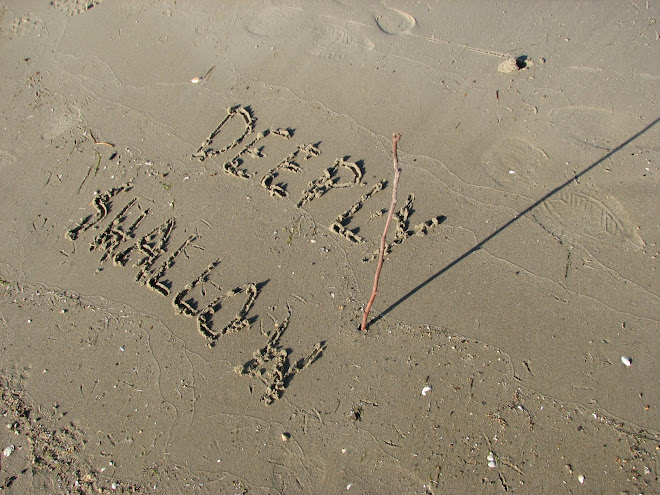Weaknesses in Modern Science
There are many weaknesses in modern science and with a little practice one can recognize examples of these weakness in scientific reports and claims. Hopefully all of these weaknesses can be corrected in the next millennium. As you are bombarded in television commercials and news reports with scientific claims, or even science and nature educational shows, ask yourself whether any of the following weaknesses flaw the presentation.Scientists Confuse Theory with Truth. When a theory proves extremely successful in predicting observations, even scientists forget that they are supposed to be ready to discard the theory objectively and without regret when it fails. This is probably because they have come to believe their theory is actually "true" rather than just a successful model. The big steps in science have been taken by those bold enough to believe the observations rather than the theories. In astronomy, for example, Kepler believed the observations of Tycho which showed that the planets move in elliptical orbits around the sun, rather than perfect circles as Copernicus had postulated. Kepler's bold step resulted in what are now known as Kepler's laws.
Disallowing Human Observations. While it is true that often an instrument can be invented which surpasses the ability of humans to observe both accurately and precisely, there is a tendency to disallow all human observations. That seems extreme, especially in the cases where no instrument has yet been invented because the phenomenon is not well enough understood. If most people were blind, would it be "scientific" to ignore all observations by the few who could see only because blind scientists could not invent a camcorder and connect it to their optic nerves? The study of extra-sensory perception, acupuncture, and the aura is finally beginning to advance in Western science because this unreasonable restriction is beginning to be relaxed. Instruments will probably be invented to observe and record these phenomena, which will put them more directly into the realm of science.
Not-yet-measured Equated to Non-existent. Even worse than ignoring the observations of those who can see something which you cannot is the tendency of science to declare that something does not even exist if cannot be measured by an instrument. This extra step into ignorance compounds the problem.
Rejecting Theory-Invalidating Observations Because of no better theory. Even when observations are made which invalidate a theory, it is the nature of most researchers not to reject the former theory until a new model is proposed that explains all of the observations so far. A modern day example of this is that quasars are still believed by most astronomers to be located extremely far away, even though there is strong evidence that they are shot out of nearby galaxies. The problem is that current theory does not explain how quasars coming toward could be "red-shifted," a phenomenon only expected to occur for objects moving away from us. Until someone can explain how quasars moving toward us can be red-shifted, astronomers are not likely to be convinced that they are nearby, no matter how strong the evidence is.
False Assumptions. All of science is based on various underlying assumptions. Often these are so deeply rooted that the scientists are unaware of just what they are. If they turn out the be wrong, then the entire edifice built upon them could fall. For example, for millennia it was assumed that the plane geometry of Euclid was "true," but then Einstein and others proposed "curved space" which has proven to be a very fruitful theory. Similarly space and time were believed to be absolute and matter was believed to be different from energy, and again it was Einstein who has argued convincingly otherwise. When the underlying foundations are wrong, it often requires rebuilding the entire scientific edifice, as was the case with Einstein.
Science Need Not Be Atheistic. In our day, the world teaches that scientists should be atheistic so that they are not prejudiced by the false traditions of religion, which hamper progress. A century ago the name of God appeared in many science books, but now his name has systematically been removed. We are taught that the thought of mixing God into science is "unscientific."
It seems very likely that in the millennium, the pendulum will swing back to allowing God to do science along with us, his creations, because it may be discovered that the real problem is the "false traditions" rather than the "religion." Future books may note that the false traditions of atheism hindered progress even more than false religion because it forced man to propose very unlikely mechanisms for the universe somehow to create itself. When the Lord reigns during the millennium, we can expect that the typical scientist will believe like Louis Agassiz, probably the greatest naturalist of his day, who said, "In our study of natural objects we are approaching the thoughts of the Creator, reading his conceptions, interpreting a system that is His and not ours." He was among those who appeared to Wilford Woodruff in the St. George Temple, requesting that his temple work be done.
Government and Special Interests. Most scientific research done today is funded by governments, so scientists must tailor their agenda (and even findings?) accordingly, or be out of work. This is particularly unfortunate in countries where secret combinations are in control. Similarly, large corporations hire scientists to prove that their products are safe to use or superior to their competitors. We can hardly expect an unbiased report of their findings. When the Savior reigns during the millennium, restrictions and falsifications caused by conspiring men should be greatly alleviated.
To some extent, we can judge right now which sciences will endure throughout the millennium by comparing them to revealed truth, by seeing how firmly they are built on the foundation of the scientific method, and by noticing how much they might be affected by the weaknesses in science.
Kes oli John P. Pratt
Link terviktekstile



No comments:
Post a Comment